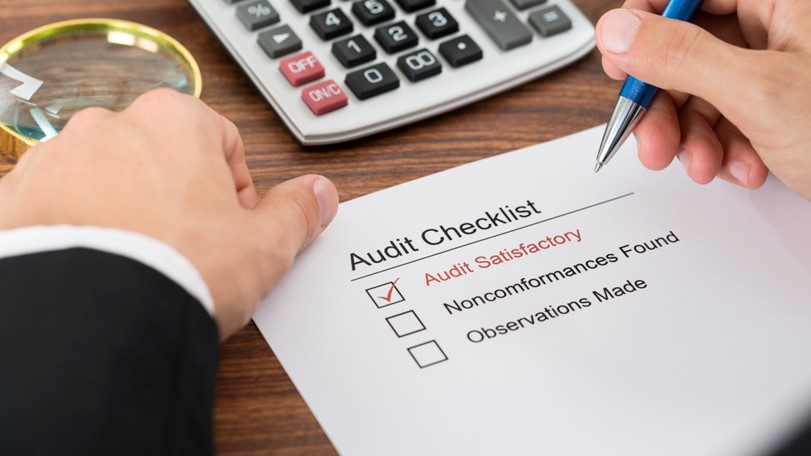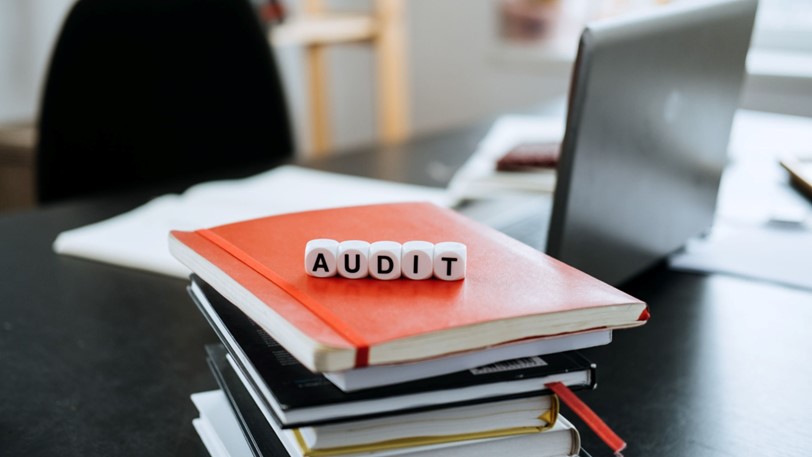Preparing for a 401k Audit: Essential Steps for Businesses

Running a successful business requires juggling numerous responsibilities, from managing operations to overseeing finances. As a business owner, you know that managing your company’s finances goes beyond just balancing the books. One aspect that demands your attention is your employees’ 401k plan. While you strive to provide a secure retirement savings option, it’s no secret that compliance and audits can be a labyrinth of confusion and stress. Still, with proper preparation and understanding, you can confidently navigate through a 401k audit and ensure smooth sailing for your business.
We get it – the mere mention of an audit might make you want to hide under your desk. But trust us, a successful and hassle-free audit is within your reach. Remember: it’s not “just an audit.” Beyond compliance, it can save money and boost your reputation.
What are 401k Audits?
But why should you care so much about preparing for this audit in the first place? Beyond avoiding penalties and headaches, a successful 401k audit can significantly benefit your business. It helps build trust with your employees, strengthens your reputation, and ensures your retirement savings plan complies with all the necessary regulations.

401k audits are financial examinations assessing a company’s retirement plan’s compliance, accuracy, and integrity. These audits ensure that employer-sponsored retirement plans are managed following the guidelines and regulations set by the Internal Revenue Service (IRS) and the Department of Labor (DOL).
The purpose of a 401k audit is twofold. Firstly, it aims to protect the interests of the plan participants – the employees who contribute to the retirement plan. By conducting audits, the government ensures that investments are handled responsibly and that the funds for retirement are not mishandled or misused.
Secondly, 401k audits serve as a means to verify the accuracy of the plan’s financial statements and ensure compliance with applicable laws and regulations. By examining the plan’s operations, transactions, and financial records, auditors can determine if the plan’s assets are correctly valued, contributions are timely and accurately allocated, and distributions are made under the plan’s terms.
Not every business is required to undergo a 401k audit. The regulatory requirements depend on the size of the plan and the number of participants. We’ll dive into this in a bit, but spoiler alert: there have been changes in the requirements for plan years beginning January 1, 2023. To learn more, watch this video about 401k audits.
401k Audit vs. Financial Statement Audit

When it comes to audits, you may be more familiar with the term “financial statement audit.” But how does a 401k audit differ from the more traditional audit?
While financial statement audits scrutinize a company’s overall financial health, including its assets, liabilities, and profitability, 401k audits take a more targeted approach. Their primary focus is on the employer-sponsored retirement plan.
One of the key differences lies in the specific requirements set by regulatory bodies. Financial statement audits adhere to the Generally Accepted Accounting Principles (GAAP) and focus on examining a company’s financial records, transactions, and statements. In contrast, 401k audits are governed by the rules established by the IRS and the DOL. These audits delve into the intricacies of the retirement plan, such as contributions, distributions, participant eligibility, plan investments, and administration.
Additionally, 401k audits have a unique participant-focused approach. They go beyond checking the accuracy of financial statements and dive deep into the operations of the retirement plan. Auditors scrutinize the plan’s compliance with specific regulations, ensuring that employee contributions are correctly allocated, vesting periods are followed, and distributions are made under the plan’s provisions.
Another distinctive feature of 401k audits is the emphasis on fiduciary responsibility. Employers who sponsor 401k plans are considered fiduciaries entrusted with managing the plan in the best interest of its participants. Thus, 401k audits evaluate whether employers are fulfilling their fiduciary duties and adhering to the stringent regulations that govern these plans.
So, while financial statement audits provide a bird’s-eye view of a company’s financial landscape, 401k audits zoom in on the details of the retirement plan, ensuring its compliance, accuracy, and integrity. By understanding the unique focus and requirements of 401k audits, businesses can better prepare and navigate through this specialized audit process.
401k Audit Requirement Changes
You may recall that we mentioned recent changes in the 401k audit requirements. These changes specifically pertain to how participants are counted and how it affects the need for an audit.

Under the previous method, all eligible participants had to be counted regardless of their account balance. However, starting January 1, 2023, a new approach will be in effect. Now, plans will only need to count participants with an account balance. Additionally, you must report the number of account balances in the new line item for defined contributions in Form 5500 on the first day of the plan year.
This modification is aimed at creating a more streamlined and efficient process. As the DOL estimates, around 19,000 plans, previously subject to audits due to a higher participant count, will now be exempt from this requirement. As a result, these businesses will experience significant cost savings and a reduced administrative burden.
It’s important to note that the count includes the account balances of both active participants and terminated employees who have left their money in the plan. Consequently, you can reduce your account balances and be exempt from an audit by taking these steps:
- Requiring the withdrawal of small account balances for terminated employees.
- Contacting terminated employees with larger account balances, reminding them of their 401k accounts, and exploring options such as rolling the account into an Individual Retirement Account (IRA) or their current employer’s plan.
Staying informed about 401k audit requirement changes is crucial to ensure compliance, avoid penalties, and effectively manage your retirement plan. By actively seeking information, consulting professionals, and staying up to date on regulatory updates, businesses can adapt to changes and maintain a strong foundation for their employees’ retirement savings. The MBE CPAs app has a customizable news feed that provides industry-specific updates and articles to keep you in the know and informed first. Download it now or fill out this form for a free consultation.
Preparing for a 401k Audit

Properly preparing for a 401k audit involves:
- Organizing documentation and records.
- Reviewing plan compliance with regulations.
- Conducting a self-audit or internal review.
By taking proactive steps to ensure accurate recordkeeping, assess compliance, and address potential issues, you can streamline the audit process and demonstrate your commitment to maintaining a compliant 401k plan.
Organizing Documentation and Records
1. Gathering all necessary plan documents and participant data
The first step in preparing for a 401k audit is to collect all relevant plan documents and participant data. This includes the plan document, summary plan description, annual reports, participant statements, and any amendments or updates to the plan. Collecting these documents ensures you have all the necessary information during the audit.
2. Ensuring accurate and complete recordkeeping
It is crucial to maintain accurate and complete records related to the 401k plan. This includes documenting participant eligibility, contributions, distributions, loans, and other plan transactions. By maintaining organized and accurate records, you can quickly provide the necessary documentation to the auditor and demonstrate compliance with applicable regulations.
Reviewing Compliance with Plan Documents and Regulations
1. Assessing plan compliance with IRS and DOL regulations
Reviewing the plan’s compliance with Internal Revenue Service (IRS) and Department of Labor (DOL) regulations is essential in preparing for an audit. This involves reviewing the plan’s operations and procedures to ensure they align with the requirements outlined in the plan document and relevant regulations.
2. Identifying and addressing any potential compliance issues or discrepancies
During the review process, it is important to identify any potential compliance issues or discrepancies. This could include errors in participant eligibility, contribution calculations, vesting, or other plan provisions. Identifying these issues early on allows you to address them before the audit and minimize potential penalties or fines.
Conducting a Self-Audit or Internal Review

1. Performing a mock audit to identify potential areas of concern
To prepare for a 401k audit, consider conducting a self-audit or internal review. This involves simulating the audit process and thoroughly examining all aspects of the plan. By performing a mock audit, you can proactively identify and address any potential areas of concern.
2. Addressing any findings or areas requiring improvement
If any issues or areas requiring improvement are identified during the self-audit, it is crucial to address them promptly. This may involve updating plan documents, implementing new procedures, or providing additional training to plan administrators. By proactively addressing these findings, you can demonstrate your commitment to maintaining compliance and mitigating risks during the official audit
Choosing the Right Auditing Firm
We have discussed various steps in preparing for a 401k audit, such as organizing documentation and records, reviewing compliance with plan documents and regulations, and conducting a self-audit or internal review. Equally important is choosing the right auditor to ensure a smooth and successful process.

When choosing an auditor, experience and expertise are key factors to consider. You want an auditor who deeply understands 401k audits and is well-versed in the specific regulations and guidelines that apply to your plan. At MBE CPAs, we have a proven track record of conducting 401k audits, and our team of experts has extensive experience in navigating the complexities of these audits.
Reputation is another aspect to consider. MBE CPAs has established a strong reputation for providing high-quality audit services. Our clients have consistently praised our professionalism, attention to detail, and dedication to delivering accurate and reliable audit reports.
Cost is always a consideration, and at MBE CPAs, we understand the need for audit services that fit within your budget. We provide transparent and competitive fee structures while ensuring you receive the expertise to meet your audit needs.
Finally, communication throughout the audit process is essential for a successful engagement. MBE CPAs is known for its exceptional client service. We maintain open and transparent communication, promptly addressing any questions or concerns you may have. Our team is always available to provide guidance and assistance whenever you need it.
The tax planning season is upon us, so don’t wait. Discover the MBE Audit Advantage today!
